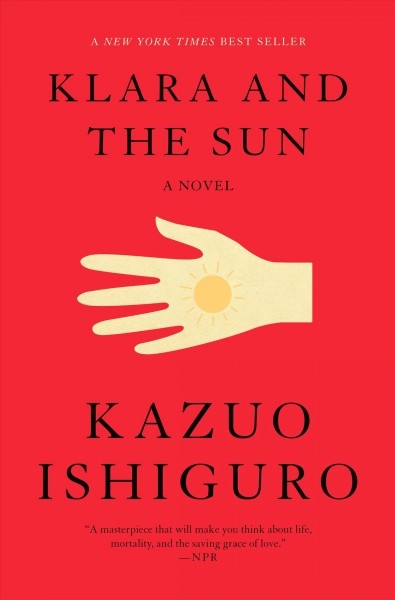
I have never cared deeply or felt great compassion for a robot. Until now.
I just finished Klara and the Sun, the latest novel by Kazuo Ishiguro, author of The Remains of the Day and Never Let Me Go, and to my surprise, I feel like I’m saying goodbye to a dear friend. Never mind that Klara, the book’s narrator, is a machine, an AI wunderkind. The two of us have been on a journey together, asking questions both simple and profound, sometimes finding answers, sometimes not. Now I’m considering all that I felt, as I shared in Klara’s story. I’m also reflecting on the nature of feelings themselves, and, perhaps more than anything else, the experience of learning how to love.
Klara and the Sun is set in the United States, some time in the near future. In light of the subject matter and setting, the novel could be shelved as Science Fiction, however, like so many of the books I’ve been enjoying lately, Klara and the Sun defies genre. It’s highly realistic and beautifully written, so perhaps file it under contemporary or literary fiction. It’s also a tender coming-of-age story for Klara, and also for her flesh and blood companion, Josie, a very believable girl who struggles with specific human frailties, such as illness and peer pressure. There are elements of romance, a la Romeo and Juliet; family sagas in which complicated adult characters confront conflicts and their own limitations also abound. But above all, for me, at least, Klara and the Sun is a mystery, filled with big and little puzzles to solve. For all the characters, but especially for Klara, the central compelling questions are these: What does it take to truly connect, how much of ourselves should we give to others, and how much of ourselves should we keep? What does it mean, exactly, to be human?
Klara and the Sun is a haunting, tender, intimate novel with a gut-punch of an ending that I encourage you to read, with others if possible. For Klara and Ishiguro, as for the author, E.M. Forster, "Only Connect" for better or for worse, is what it's all about.